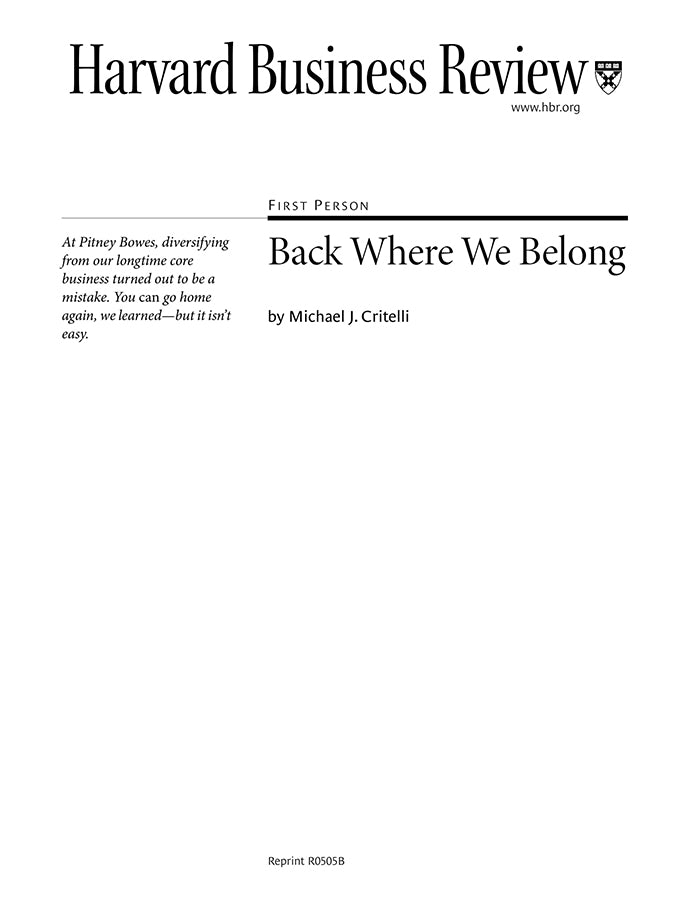Back Where We Belong
受取状況を読み込めませんでした
If you were the CEO of Pitney Bowes, the postage meter maker, how would you envision the future of the business? The company has an undeniable core competence in the solutions it provides to high-volume postal service users. But with snail mail on the decline, some would say that core has about as much future as the buggy whip. In this article, Pitney Bowes Chairman and CEO Michael Critelli gives us a glimpse of how he leads his company's strategy development--and how that development has supported a counterintuitive return to the company's core after decades of diversification. He and others in the company begin the process by tapping into deeply knowledgeable people and organizations to understand key trends in the business and the rate at which change is occurring. Then, it's a question of the firm reshaping the environment in which it does business, whether through R&D investments or work with regulators and policy makers who influence market forces; this is especially important in emerging markets. Focusing on a core business area enables a company to find adjacent high-margin opportunities and to offer comprehensive solutions to customers. What stands out most sharply in this account, however, is the importance of having a strategist's mind-set. Whether Critelli is reading the day's news, visiting a key account, or spending an hour with his own people working in the context of a customer mail room, he is constantly extrapolating possible long-term competitive implications from the immediate facts. Often inspired by strategic thinkers, Critelli believes that the greatest thing he can do for his organization is to shift the terms of the debate. "Rarely am I credited with sterling words or bold, symbolic actions," he writes. "Instead, I help people to see the business we are in differently and to reach a shared vision as to where we want to end up. And, little by little, things move in the right direction."
【書誌情報】
ページ数:12ページ
サイズ:A4
商品番号:HBSP-R0505B
発行日:2005/5/1
登録日:2012/3/28


